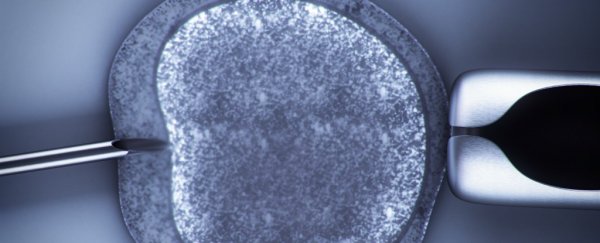For the first time, scientists have successfully taken human eggs from their earliest stages to maturity in a lab setting.
This accomplishment is set to give us new insight into how human eggs develop, and it could potentially offer a compelling new option to individuals who are at risk of fertility loss.
For the study, researchers at the University of Edinburgh took ovarian tissue from 10 people in their late 20s and 30s. Using various nutrients, they encouraged eggs to develop to maturity, the point at which they could be fertilised.
A total of 48 eggs reached the final stage of the process, and of those, nine reached full maturity.
Currently, individuals at risk of infertility due to radiotherapy or chemotherapy can have ovarian tissue removed ahead of treatment and re-implanted at a later date.
For young people who haven't yet gone through puberty and aren't yet producing eggs, this is the only option for preserving fertility, Evelyn Telfer, co-author of the research, told The Guardian.
That process raises concerns that re-implanting tissue taken prior to cancer treatment might reintroduce cancer cells into an individual's body. The new procedure alleviates those concerns because instead of implanting tissue, the doctor would implant an embryo, according to Telfer.
Researchers still have much more work to do before this procedure could be used in practice. At the very least, it will take a number of years to ensure that the mature eggs produced are healthy.
According to the researchers, the eggs they grew developed faster than they would have in the body, which begs further investigation.
Moreover, a small cell known as a polar body grew to an unusually large size during the process, which could indicate developmental abnormalities.
The team wants to attempt to fertilise the eggs, so it can perform tests on the embryos.
Still, this is a major milestone in fertility research, and it could give new hope to those who may not have had any before.
This article was originally published by Futurism. Read the original article.
